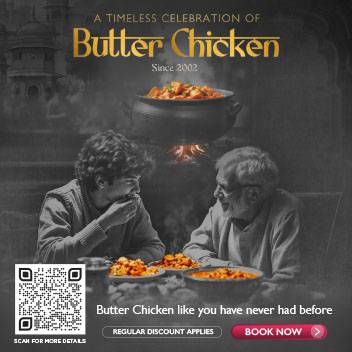As the biggest holiday of the year for the Hindu community, Diwali celebrates the victory of light over darkness, knowledge over ignorance, good over evil and hope over despair.
The Festival of Lights, a century old tradition, is celebrated during the months of October or November – marking the last harvest of every year before winter time.
Even today, communities such as the Hindus, Jains, Sikhs and Newar Buddhists come together to celebrate the five-day long tradition, with each day symbolising a different virtue.
Day One: Dhanteras
History: With various stories in different regions, Dhanteras is said to be the day Lord Dhanwantari appeared out of the ocean, bringing with him the science of Ayurveda. Another story is that Goddess Lakshmi emerged from the ocean during the churning of the Milky Sea.
What to do: To symbolise the start of the festivities, consider spring cleaning your home, washing up with fragrant oils and giving Mithai (Indian sweets) to your loved ones. In addition, light a diya (traditional clay lamp) outside your home to ward off the untimely death of family members.
Day Two: Narak Chaturdashi
History: The goddess Kali and Lord Krishna destroys the demon Narakasur, freeing the world from fear.
What to do: As the day before the big Diwali celebration, be sure to relax and prepare yourself mentally for the following day. If you’re up to the creative challenge, try creating rangoli – traditionally designed patterns – on the floor at the entrance of your home. Alternatively, use this day to give Diwali greetings to your neighbors and bear small gifts.
Day Three: Diwali Puja
History: Communities across the globe dedicate this day to celebrating and worshipping the goddess Lakshmi and Lord Ganesha.
What to do: Start off your morning by paying tribute to your family ancestors and performing special pujas (ceremonies). Decorate your home with marigold flowers for proper Diwali decoration. Get together with your family and friends and share traditional Diwali recipes such as Gajar Halwa, Anarsa and Karanji.
Day Four: Govardhan Puja
History: Lord Krishna defeats Indra, the god of thunder and rain.
What to do: Release your inner cook by creating dishes made of cereals like wheat, rice and curry of gram flour – which is traditionally prepared to honor Lord Krishna.
Day Five: Bhaiya Dooj
History: Although very little history is attributed to Bhaiya Dooj, the day is universally known as one that celebrates sibling love.
What to do: Be sure to reach out to your sibling on the last day of the spiritual festival. As a sister, pray for your brother’s long, healthy and happy life. As a brother, visit your sister and offer Mithai in honor of her.
Celebrate Diwali at Asha’s
Join us at Asha’s Wafi on the 19th of October, where you’ll be greeted with traditional Diwali decorations, complimentary Indian sweets for every table and the brightening sight of diyas to welcome you to our home.
Asha’s Diwali Competition
In further celebration of the Festival of Lights, we’re giving diners the opportunity to dine for free at Asha’s with their loved ones. Simply dine at Asha’s Wafi during the five-day Diwali celebration (17-22 October) and stand a chance to dine for free at Asha’s on New Years Eve*. We look forward to welcoming you soon!
*More information on this offer will be shared on Asha’s social accounts.






